New IFS research finds that providing school breakfasts free to all children in disadvantaged English primary schools helps pupils to make two months’ additional progress over the course of a year. These gains seem to be driven by better behaviour and concentration in the classroom, meaning that even students who don’t eat breakfast at school can benefit from the improved learning environment. These benefits come at a low cost relative to other programmes with a similar impact on attainment.
The results of the breakfast club evaluation featured in this work were updated in December 2019. See the revised report here.
Authors

Research Fellow University College London
Claire is a Research Fellow at IFS, working on the determinants and consequences of participation in childcare and education for parents and children.

Research Fellow University of Bristol
Ellen, who was a Senior Research Economist at IFS and is now a Research Fellow, is a Max Weber Fellow at the European University Institute.

Associate Director
Christine's research examines inequalities in children's education and health, especially in the early education and childcare sector.
Report details
- Publisher
- Education Endowment Fund
Suggested citation
C, Crawford and C, Farquharson and E, Greaves. (2016). Magic Breakfast. London: Education Endowment Fund. Available at: https://ifs.org.uk/publications/magic-breakfast (accessed: 16 April 2025).
Related documents
More from IFS
Understand this issue

Rethinking the Education Maintenance Allowance: Lessons from a long-term analysis
This evidence should prompt us to look beyond simple financial incentives for classroom attendance.
10 March 2025
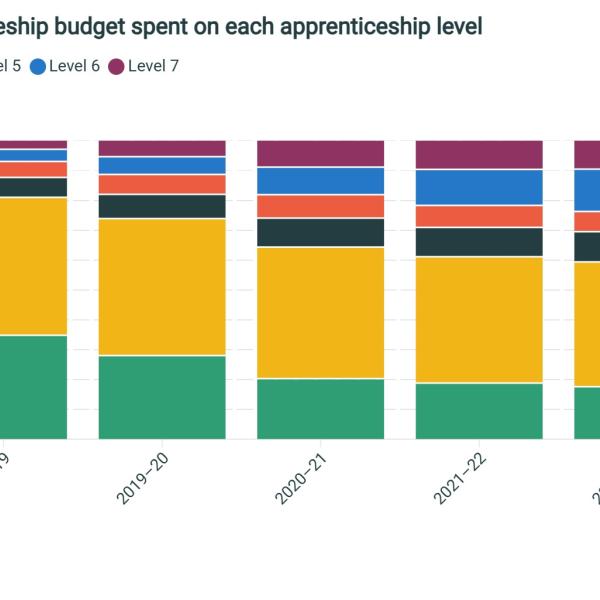
Share of apprenticeship budget spent on each apprenticeship level
The proportion of funding directed to higher-level apprenticeships (level 4 and above) has trebled between 2017–18 and 2021–22 from 13% to 39%.
16 January 2025

Do tariffs work?
We discuss the economic consequences of tariffs, why governments use them, and whether they actually achieve their intended goals.
23 January 2025
Policy analysis
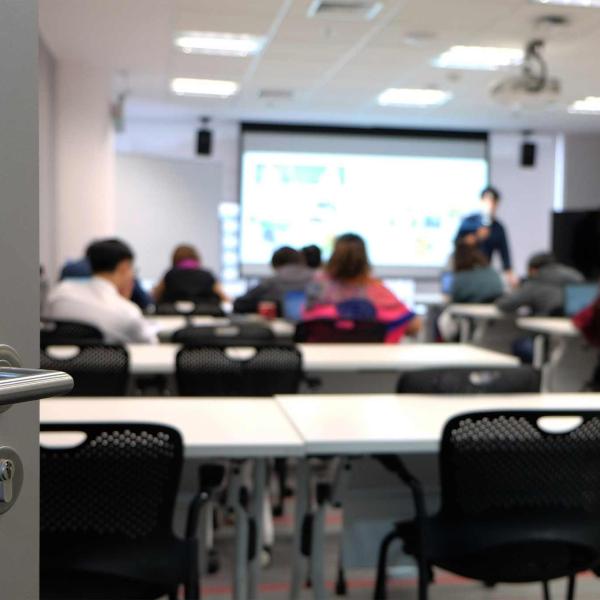
The short- and long-run effects of the Education Maintenance Allowance
This report studies the long-run effect of the Education Maintenance Allowance on educational attainment, earnings and crime.
26 February 2025

How can policy boost productivity growth?
At this policy conference, four panels of experts gave their perspectives and recommendations on four key areas of the UK’s productivity problem.

Scottish school spending, teachers and pupil numbers
Scotland’s schools are relatively well funded. Falling pupil rolls and workforce planning represent both challenges and opportunities going forwards.
14 February 2025
Academic research
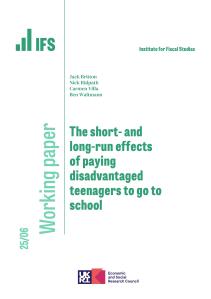
The short- and long-run effects of paying disadvantaged teenagers to go to school
This working paper studies the long-run effect of a cash transfer to disadvantaged students on educational attainment, earnings and crime.
26 February 2025
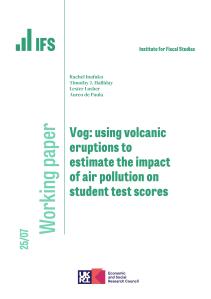
Vog: using volcanic eruptions to estimate the impact of air pollution on student test scores
We demonstrate that poor air quality disproportionately impacts the human capital accumulation of economically disadvantaged children.
20 February 2025
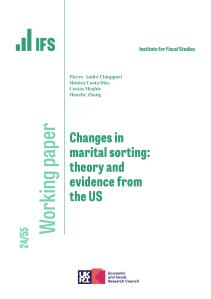
Changes in marital sorting: theory and evidence from the US
Measuring how assortative matching differs between two economies is difficult, we show how the use of different measures can create different outcomes
27 November 2024